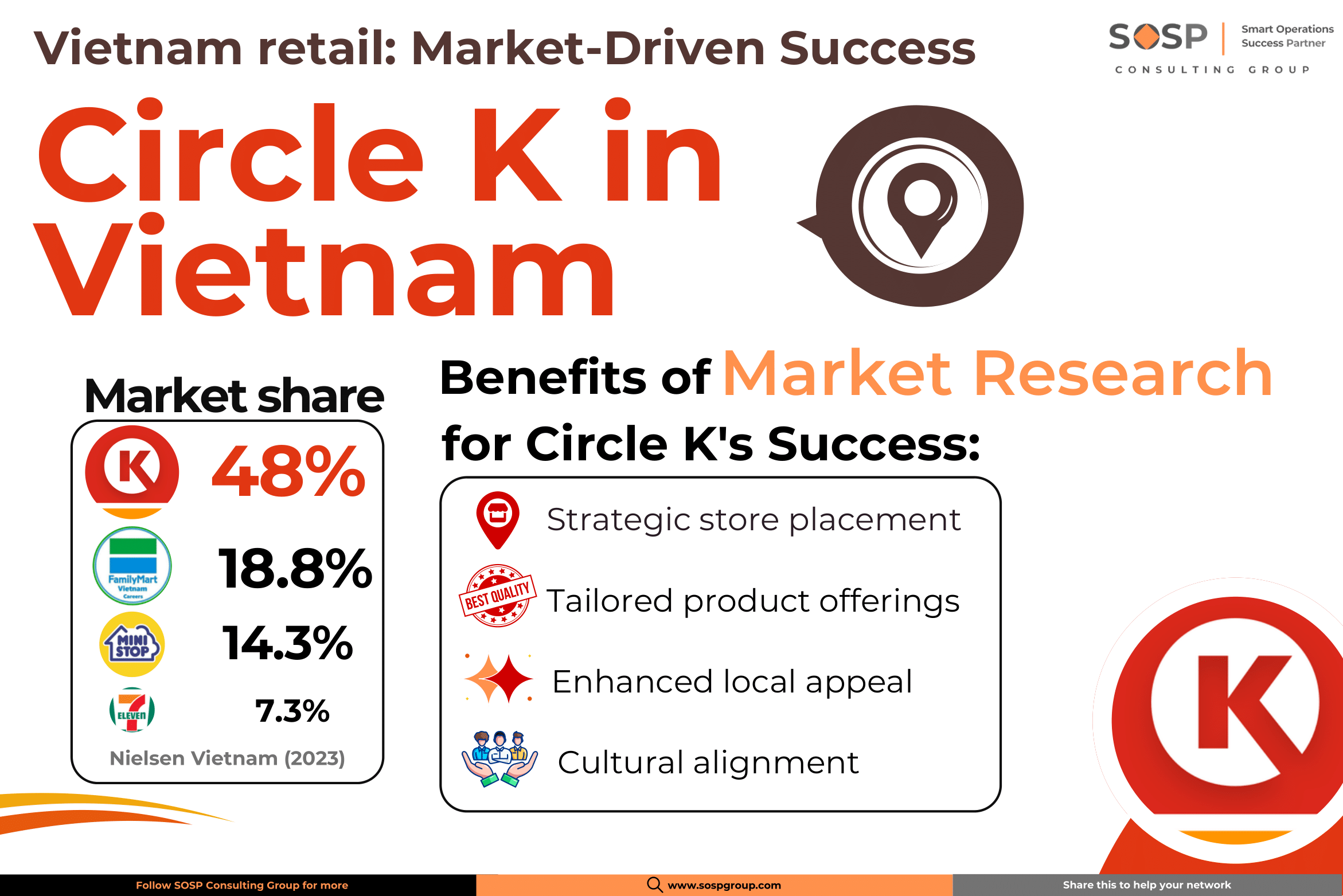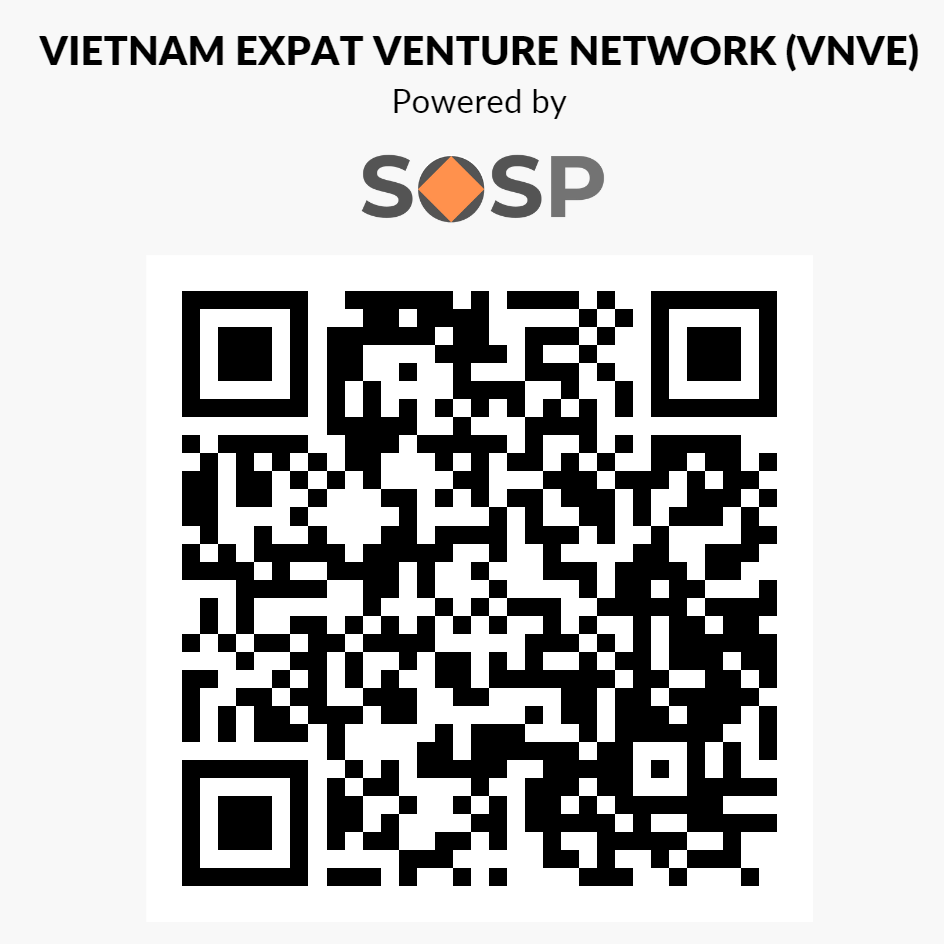Expanding Your Retail Business to Vietnam? 15 Things You'll Need to Do
Vietnam’s rapidly evolving economy is becoming a prime target for retail businesses. Entrepreneurs in convenience stores, food retail, and F&B chains are recognizing its enormous potential. With the right strategy, this dynamic market can be an ideal place to scale your business. Here's a 15-step guide to ensure a successful expansion, enhanced by insights from influential business leaders.
1) Research the Market
Before entering the Vietnamese market, comprehensive research on consumer behavior, competitors, and local regulations is essential. For example, the coffee culture in Vietnam is rich and diverse, with a growing market for specialty roasters. Understanding the competitive landscape and preferences for robusta versus arabica beans can shape your strategy.
As Warren Buffett said, “Risk comes from not knowing what you’re doing.” In-depth market research will mitigate risks and give you the knowledge to enter Vietnam with confidence. Understanding the market research industry in Vietnam can provide insights that are critical for your business decisions.

2) Understand Local Regulations
The Vietnamese legal and tax environment can be complex, particularly for foreign companies. For example, dairy products have specific import and labeling requirements. It’s crucial to work with local legal experts to ensure compliance.
“Good judgment comes from experience, and experience comes from bad judgment,” said Rita Mae Brown. Learning from others’ mistakes or successes is key when navigating these regulatory challenges.
3) Select the Right Entry Mode
Retail businesses in Vietnam can enter via exporting, franchising, joint ventures, or establishing a local entity.
As Richard Branson famously said, “Business opportunities are like buses; there's always another one coming.” Choosing the right entry mode—whether establishing a local company or partnering with local firms—can be the key to long-term success in Vietnam’s retail sector.
4) Adapt Your Products or Services
Localizing your products is essential for success. In Vietnam’s dairy sector, for instance, taste preferences lean towards sweeter flavors. Adapting your product formulations, such as producing sweeter yogurt or flavored milk, can help you capture local demand.
As Peter Drucker said, “Culture eats strategy for breakfast.” Adapting your offerings to fit Vietnamese tastes will drive growth.
5) Localize Your Brand
Your brand's identity must resonate with Vietnamese consumers. In the packed food sector, ensuring that your packaging is appealing and informative in Vietnamese can be the difference between success and failure.
Steve Jobs once said, “Innovation distinguishes between a leader and a follower.” Innovating your brand approach for the local market will make your product stand out.
6) Build Relationships with Local Partners
In Vietnam, trust and personal relationships are integral to doing business. Finding local partners with deep knowledge of the dairy or packed food industries will give you valuable market insights and distribution access.
Helen Keller reminds us, “Alone we can do so little; together we can do so much.” Collaboration is key to navigating Vietnam's business landscape.
7) Hire Local Talent
Hiring local employees gives you direct access to market insights and helps you stay connected with Vietnamese culture. In the FMCG space, for instance, your sales and marketing teams need to understand the fast-paced retail environment to thrive.
Henry Ford said it best: “The only thing worse than training your employees and having them leave is not training them and having them stay.” Invest in your local team for long-term success. Engaging a management consultant for SMEs can also be beneficial in guiding your hiring strategy.
8) Set Up Efficient Supply Chains
A seamless supply chain is essential, especially in Vietnam’s packed food and coffee industries. Efficient logistics can mean the difference between fresh, high-quality products and wasted inventory. For example, dairy products require temperature-controlled distribution networks.
“The line between disorder and order lies in logistics,” said Sun Tzu. Ensuring your supply chain is reliable is crucial for delivering your products efficiently to the market.
9) Create a Strong Online Presence
Vietnam’s e-commerce market is rapidly expanding, particularly in the food retail space. From coffee beans to packed foods, building a strong presence on platforms like Shopee or Lazada will help you reach a broader audience.
As Bill Gates said, “The internet is becoming the town square for the global village of tomorrow.” Having a robust digital strategy is key to thriving in Vietnam’s retail environment.
10) Secure Local Funding and Financial Support
Partnering with local investors or securing funding from Vietnamese banks can accelerate your expansion. Dairy companies like Vinamilk have successfully attracted both local and foreign investment to fuel their growth. John D. Rockefeller reminds us, “Don’t be afraid to give up the good to go for the great.” Explore local financial options to scale your business effectively.
11) Focus on Compliance and Transparency
Being transparent in your operations builds trust with regulators and partners. For packed food companies, complying with Vietnam’s strict labeling laws is a must for long-term success.
“Honesty is the first chapter in the book of wisdom,” said Thomas Jefferson. Compliance and transparency are non-negotiable in Vietnam’s growing retail market.
12) Conduct a Competitive Analysis
Analyzing competitors helps you position your products effectively. Vietnam’s coffee industry, for instance, has seen a surge in specialty coffee brands, but there is still room for niche offerings like organic or fair-trade options.
As Jeff Bezos says, “Your margin is my opportunity.” Always monitor competitors to capitalize on market gaps.
13) Leverage E-commerce and Digital Channels
Vietnam is becoming a powerhouse in e-commerce. Leveraging platforms like Tiki or Shopee is crucial, especially for the FMCG sector. For example, Vietnamese consumers increasingly buy coffee beans, dairy products, and packed foods online, making digital channels vital for growth.
“In the future, there will be no female leaders. There will just be leaders,” said Sheryl Sandberg. E-commerce levels the playing field, offering equal opportunities for leadership and success.
14) Engage with Local Communities
Corporate social responsibility is a powerful way to build your brand in Vietnam. Engaging with communities through sustainability programs, especially in sectors like coffee, can boost your brand’s reputation and foster customer loyalty.
“People don’t care how much you know until they know how much you care,” said Theodore Roosevelt. Engaging with local communities builds goodwill and strong brand relationships.
15) Monitor Political and Economic Stability
Vietnam’s political and economic environment can impact your business. Keeping an eye on regulatory changes or economic trends will allow you to make informed decisions. For example, shifts in agricultural policies could impact dairy or coffee production.
As Albert Einstein said, “In the middle of difficulty lies opportunity.” Stay informed and adapt to the evolving market landscape.
How Circle K Leveraged Market Insights for Success in Vietnam’s retail sector
Circle K has established itself as the leading player in Vietnam's convenience store sector, a market long dominated by foreign brands with thousands of outlets. According to a 2023 survey by Nielsen Vietnam, Circle K holds a remarkable market share of 48%, far surpassing competitors such as FamilyMart at 18.8%, Ministop at 14.3%, and 7-Eleven at 7.3%.
Circle K's successful expansion into Vietnam showcases the importance of strategic planning in the retail sector. To tap into the country's growing consumer market, Circle K focused on market research to identify the demand for convenient, quick-service stores in urban areas. Understanding local consumer behavior allowed them to position their stores strategically near schools and business districts, ensuring high foot traffic.
Some key points of Circle K's success in Vietnam include a deep understanding of the market and consumers. Circle K has spent time researching the Vietnamese market, resulting in products and services that cater to local needs. By introducing popular Vietnamese snacks, Circle K effectively appealed to local tastes, demonstrating the significance of cultural alignment in product offerings.
Moreover, Circle K embraces the 3P principle (Patience) as part of its marketing strategy. As Mr. Yan shared, “patience, patience, patience” is the mantra that helps Circle K maintain sustainable growth in the Vietnamese market. They believe that only through continuous service, such as the 24/7 convenience store model, can they thrive.
Additionally, Circle K has adopted the 4F service approach: Fresh, Friendly, Fast, and Full. This strategy has attracted customers and contributed to the success of their marketing campaigns. The stores invest in diverse services, from quick snacks to freshly prepared products, catering to consumer preferences and tastes.
Building relationships with local partners was also key to Circle K's strategy. By collaborating with local suppliers, they could stock stores with familiar products, enhancing their appeal. This approach not only facilitated smoother operations but also fostered trust within the community.
In essence, Circle K's success in Vietnam illustrates how thorough market research, product localization, and strategic partnerships can drive growth in a dynamic market. For entrepreneurs aiming to enter Vietnam’s retail landscape, these strategies serve as a valuable roadmap for navigating the complexities of the market.

Conclusion: Ready to Expand to Vietnam?
For entrepreneurs in the retail industry, Vietnam offers tremendous growth potential. Navigating the complexities of doing business in Vietnam requires a tailored approach that considers each business's unique needs and strategies. To ensure a seamless and successful expansion into Vietnam’s dynamic retail industry, consider seeking expert guidance in specific fields such as legal, accounting, HR, or marketing. This targeted support can help you navigate challenges and seize opportunities effectively.
Need to validate your product potential in Vietnam? Ask us!
Reach out to SOSP Consulting Group for tailored market research for SMEs in Vietnam to support your expansion plan.
Reference:
https://cafef.vn/the-tran-shop-tien-loi-tai-viet-nam-doanh-thu-hon-1000-ty-nam-nhung-gs-25-family-mart-7-eleven-ngap-trong-thua-lo-duy-nhat-1-dn-viet-mac-han-lai-lien-tiep-3-nam-188240801184305643.chn
https://www.vietdata.vn/vi/post/th%E1%BB%8B-tr%C6%B0%E1%BB%9Dng-b%C3%A1n-l%E1%BA%BB-ti%E1%BB%87n-l%E1%BB%A3i-vi%E1%BB%87t-nam-sau-covid-19-doanh-nghi%E1%BB%87p-d%E1%BB%93n-s%E1%BB%A9c-ch%E1%BA%A1y-%C4%91ua-th%E1%BB%8B-ph%E1%BA%A7n






